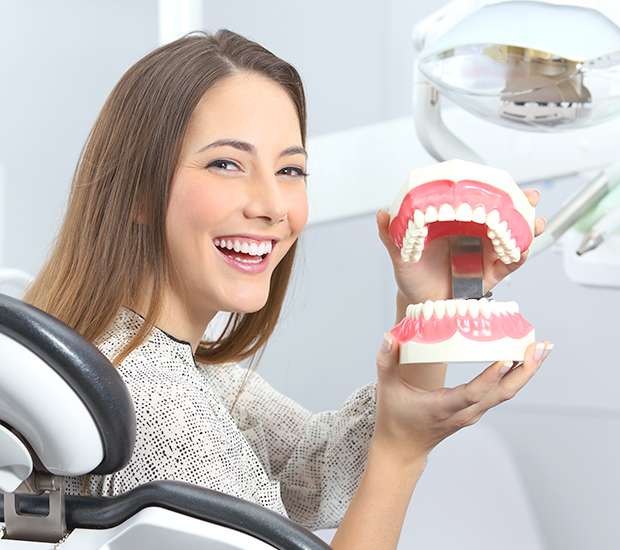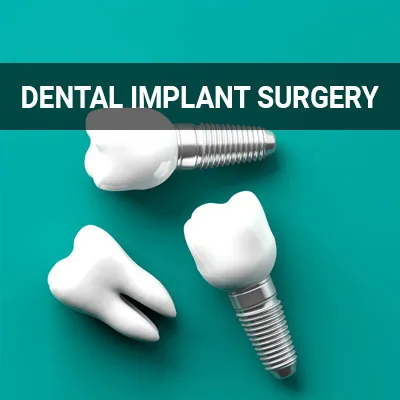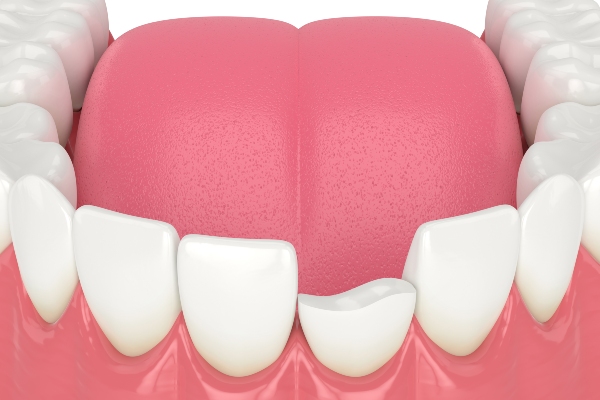Implant Dentist North Miami Beach, FL
An implant dentist is a dental professional who is qualified to place surgical fixtures that anchor dental prostheses. Implant dentistry offers patients a permanent, comfortable, and effective way to improve their mouths' look and function. Implants allow placement of dental prostheses such as replacement teeth, crowns, and bridges in the jaw.
Implant dentistry is available at Biscayne Dental Center in North Miami Beach and the surrounding area. Our team can help you restore your smile's appearance and function. Call us today at (305) 824-2271 to learn more about our services or schedule an appointment.
The Qualifications of an Implant Dentist
Professionals who refer to themselves as "dental implant authorities" may have received credentialing and training beyond the typical four years of dental school through another organization. Others may practice in one of two specialty areas recognized by the ADA:
- Dental Implant Surgery: A dental implant surgeon is a type of dental professional. They typically possess additional training and experience in oral surgical procedures.
- Oral and Maxillofacial Surgery: Oral and maxillofacial surgeons possess at least four years of post-graduate hospital training. Among other things, said training usually includes comprehensive training in bone grafting and the surgical placement of dental implants.
A general dentist with the appropriate training and experience may also be qualified to place implants. However, generalists may refer patients with more complex needs to implant professionals, typically an oral surgeon or periodontist. A more focused background on implant placement can help handle a wider range of patient issues.
“Those who refer to themselves as “dental implant authorities” may have received credentialing and training beyond the typical four years of dental school through another organization.”
The Implant Process
The dental implant procedure looks different for every patient. However, an implant dentist will generally follow five steps to help a patient achieve a beautiful, long-lasting smile. The American Academy of Implant Dentistry explains in detail:
- Initial Consultation: During the initial consultation, an implant dentist will perform a thorough examination. This can determine a patient’s candidacy for the procedure and the extent of tooth loss.
- Implant Placement: If a patient is a viable candidate, the dentist will schedule an appointment. During the surgery, the dentist places the titanium screw (faux tooth root) into the jawbone.
- Osseointegration: Once the implant is in, the patient must wait an additional three to six months for the screw to fuse to the jawbone. This process is called osseointegration. During this time, the doctor may restrict the patient’s diet to ensure the gums heal properly.
- Abutment Placement: Once osseointegration is successfully completed, the dentist will place a small connector, or abutment, atop the implant. This serves to raise the implant above the gum line.
- Make and Attach Crowns: Depending on the success of the abutment, the dentist may place the crowns during the same appointment. Regardless of when an implant dentist chooses to place the implant, they will need to take impressions of the mouth and remaining teeth to successfully create natural-looking artificial teeth. The dentist will then attach these crowns to the abutments.
Once the dentist places the implants, the patient will need to maintain regular checkup appointments. The patient will also need to care for the crowns as they would regular teeth to keep the gums healthy.
“The patient will also need to care for the crowns as they would regular teeth to keep the gums healthy.”
Dental Implants Vs. Dentures
Dental implants and dentures are both common options to replace missing teeth. Dental implants are a permanent solution to replace a missing tooth or teeth. Dentures are removable appliances that replace missing teeth and some gum tissue.
Many patients often opt for implants due to their natural appearance and function. However, people must have healthy gums and jaws to receive a dental implant. Dentures may be the right choice for patients who have gums or jaw that are weak or unhealthy.
“Many patients often opt for implants due to their natural appearance and function.”
Check out what others are saying about our dental services on Yelp: Implant Dentist in North Miami Beach, FL
Alternative Implant Options
Implant-supported crowns are a popular solution for missing teeth, but they are not the only option available. Implant dentists can also provide implant-supported dentures or bridges. While crowns replace one missing tooth at a time, bridges can restore multiple missing teeth at once. The number of implants placed will depend on the bridge size.
Dental implants hold the bridge securely so that it feels and functions just like natural teeth. Unlike conventional dentures that sit on the gums, implant-supported dentures are more stable and versatile. This restorative appliance tends to fit better and feels more comfortable than traditional dentures while preserving the jawbone and preventing further bone loss.
“Implant dentists can also provide implant-supported dentures or bridges.”
Questions Answered on This Page
Q. How do dental implants compare to dentures?
Q. What are the alternatives to dental implants?
Q. When should people seek an implant dentist?
Q. What qualifications does an implant dentist have?
Q. What happens in the implant process?
People Also Ask
Q. Who is a good candidate for dental implants?
Q. What should a patient do after dental implant surgery?
Q. What are the implant-supported options to replace teeth?
When To Seek an Implant Dentist
According to the American Academy of Implant Dentistry, almost anyone missing at least one tooth can receive a dental implant once facial growth and development are complete. To qualify for an implant, the person should be in good general health with healthy gums and enough bone to hold the implant. They must also have good oral hygiene and attend regular dental visits.
People with one or more missing teeth can benefit from receiving treatment from an implant dentist. In some severe tooth loss cases, an implant dentist can replace all of a patient's teeth. Dental implants can significantly improve the quality of life of a patient with missing teeth. These restorations can improve the appearance, function, and feel of teeth and help people eat, speak, and feel confident.
“People with one or more missing teeth can benefit from receiving treatment from an implant dentist.”
Frequently Asked Questions
Q. What other options does an implant dentist provide?
A. Though implants are the superior tooth replacement option, an implant dentist understands that many people do not make great candidates for this procedure, whether due to cost, health, or other factors. For those patients, a less invasive method may be ideal. Four additional options include fixed bridges, which use a few implants and a bridge of faux teeth; a resin-retained bridge, which affixes to neighboring teeth; removable partial dentures; and full dentures.
Q. How many teeth can a dental implant replace?
A. While a single implant typically replaces one tooth, implants can also treat the loss of multiple teeth. Multiple implants may suffice. A fixed bridge or implant-supported dentures can also be used to replace multiple or even an entire mouthful of teeth.
Q. What can I expect after an implant dentist performs implant surgery?
A. Following dental implant surgery, a patient may experience some discomfort. Symptoms may include bruising of the gums and skin, swelling, pain at the site of the implant, and minor bleeding. The dentist may prescribe minor pain relievers and antibiotics.
Q. How might an implant dentist advise a patient to care for dental implants?
A. To ensure the longevity of implants, a dentist may advise a patient to follow a few recommended practices. Those include practicing excellent oral hygiene and avoiding teeth-damaging habits, such as chewing on hard items and opening things with one's teeth. The dentist may also recommend more frequent dental visits.
Q. Can an implant dentist guarantee the success of implants?
A. Implants have a very high success rate, but no procedure is 100% effective. Unfortunately, it is impossible to predict certain complications. However, an implant dentist can assess possible risks and take measures to prevent them before beginning surgery.
Dental Terminology
Call Us Today
An implant dentist can help correct issues with missing and damaged teeth. Our team at Biscayne Dental Center can help you achieve the smile you have always wanted. Call us today at (305) 824-2271 to schedule an appointment or learn more about our services.
Helpful Related Links
- American Dental Association (ADA). Glossary of Dental Clinical Terms. 2025
- American Academy of Cosmetic Dentistry® (AACD). Home Page. 2025
- WebMD. WebMD’s Oral Care Guide. 2025
About our business, license, and website security
- Biscayne Dental Center was established in 2011.
- We accept the following payment methods: American Express, Cash, Check, Discover, MasterCard, and Visa
- We serve patients from the following counties: Miami-Dade County
- We serve patients from the following cities: North Miami Beach, North Miami, Aventura, Sunny Isles Beach, Hallandale Beach, Bal Harbour, North Bay Village, Miami Shores, Golden Beach, Hollywood, Miami Gardens and Surfside
- FL (License #DN16637). View License Information and Specifics
- National Provider Identifier Database (1659464253). View NPI Registry Information
- Norton Safe Web. View Details
- Trend Micro Site Safety Center. View Details
Back to top of Implant Dentist












